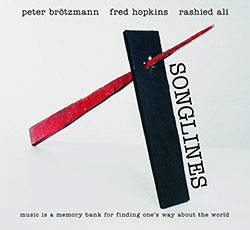
Emphasizing the lyrical aspects of free jazz, the superb trio of Peter Brotzmann on alto & tenor sax and taragato, Fred Hopkins on bass, and Rashied Ali on drums, recorded this album in 1991, now remastered to bring this exceptional music back to the foreground.
Out of Stock
Quantity in Basket: None
Log In to use our Wish List
Shipping Weight: 2.00 units
Sample The Album:
Peter Brotzmann-tenor saxophone, alto saxophone, tarogato
Fred Hopkins-doublebass
Rashied Ali-drums
Click an artist name above to see in-stock items for that artist.
UPC: 9120036682160
Label: Trost Records
Catalog ID: TROST 138CD
Squidco Product Code: 21697
Format: CD
Condition: New
Released: 2016
Country: Austria
Packaging: Cardboard Gatefold
Recorded in Berlin, Germany on October, 30th and 31st, 1991 by Holger Scheuermann and Jost Gebers.
"In perhaps the most understated performance of his entire career, German saxophone giant Peter Brotzmann played in a trio with American free jazz legends Fred Hopkins and Rashied Ali back in 1991 at the now mythical Total Music Meeting. . . . Brotzmann appears to have been in awe on this date so great is his restraint. There are literally no passages in the entire concert where he attempts to push his way through the rhythm section to get to the other side. No mean feat when you consider the man's powerful personality both on and off the stage. But Hopkins was a founding member of Air with Henry Threadgill, and Ali, of course, played with John Coltrane. Given these proceedings with their haunted, hunted, beauty, it would be fair to say that -- even on his own compositions -- the mighty Brotzmann was humbled in the presence of these great musicians. Does that mean he was humbled by them? Hardly. Brotzmann's playing here is so fiery and lyrical, so completely focused on his rhythmsection that he turns harmonies on their heads and finds intervals in places where the only thing that should be happening is free blowing. He is the band's leader by the force of that lyricism and restraint. He makes room for the other players to move through and around him rather than behind him. His sheer 'musicality' is wondrous. Hopkins and Ali are no strangers to each other -- there is telepathic communication; the shift from one modality to the next is seamless and grounded, each player by the other. There are six compositions on this record; it comes off as a very intense, extremely quiet kind of blowing gig, where this trio were looking to discover things about each other and the music they were making. As a result, it is one of the finest performances issued from that festival, and a landmark in Brotzmann's career in particular."-Thom Jurek, AllMusic
Also available on vinyl LP.Artist Biographies
• Show Bio for Peter Brotzmann "Born Remscheid, Germany on 6 March 1941; soprano, alto, tenor, baritone and bass saxophones, a-clarinet, e-flat clarinet; bass clarinet, tarogato. Peter Brötzmann's early interest was in painting and he attended the art academy in Wuppertal. Being very dissatisfied with the gallery/exhibition situation in art he found greater satisfaction playing with semi-professional musicians, though continued to paint (as well as retaining a level of control over his own records, particularly in record sleeve/CD booklet design). In late 2005 he had a major retrospective exhibition jointly with Han Bennink - two separate buildings separated by an inter-connecting glass corridor - in Brötzmann's home town of Remscheid. Self-taught on clarinets, he soon moved to saxophones and began playing swing/bebop, before meeting Peter Kowald. During 1962/63 Brötzmann, Kowald and various drummers played regularly - Mingus, Ornette Coleman, etc. - while experiencing freedoms from a different perspective via Stockhausen, Nam June Paik, David Tudor and John Cage. In the mid 1960s, he played with American musicians such as Don Cherry and Steve Lacy and, following a sojourn in Paris with Don Cherry, returned to Germany for his unorthodox approach to be accepted by local musicians like Alex von Schlippenbach and Manfred Schoof. The trio of Peter Brötzmann, Peter Kowald and Sven-Ake Johansson began playing in 1965/66 and it was a combination of this and the Schoof/Schlippenbach Quintet that gave rise to the first Globe Unity Orchestra. Following the self-production of his first two LPs, For Adolphe Sax and Machine gun for his private label, BRÖ, a recording for Manfred Eicher's 'Jazz by Post' (JAPO) [Nipples], and a number of concert recordings with different sized groups, Brötzmann worked with Jost Gebers and started the FMP label. He also began to work more regularly with Dutch musicians, forming a trio briefly with Willem Breuker and Han Bennink before the long-lasting group with Han Bennink and Fred Van Hove. As a trio, and augmented with other musicians who could stand the pace (e.g. Albert Mangelsdorff on, for example, The Berlin concert), this lasted until the mid-1970s though Brötzmann and Bennink continued to play and record as a duo, and in other combinations, after this time. A group with Harry Miller and Louis Moholo continued the trio format though was cut short by Miller's early death. The thirty-plus years of playing and recording free jazz and improvised music have produced, even on just recorded evidence, a list of associates and one-off combinations that include just about all the major figures in this genre: Derek Bailey (including performances with Company (e.g. Incus 51), Cecil Taylor, Fred Hopkins, Rashied Ali, Evan Parker, Keiji Haino, Misha Mengelberg, Anthony Braxton, Marilyn Crispell, Andrew Cyrille, Phil Minton, Alfred 23 Harth, Tony Oxley. Always characterised as an energy player - and the power-rock setting of Last Exit with Ronald Shannon Jackson, Sonny Sharock and Bill Laswell, or his duo performances with his son, Casper, did little to disperse this conviction - his sound is one of the most distinctive, life-affirming and joyous in all music. But the variety of Brötzmann's playing and projects is less recognised: his range of solo performances; his medium-to-large groups and, in spite of much ad hoc work, a stability brought about from a corpus of like- minded musicians: the group Ruf der Heimat; pianist Borah Bergman; percussionist Hamid Drake; and Die like a dog, his continuing tribute to Albert Ayler, with Drake, William Parker and Toshinori Kondo. Peter Brötzmann continues a heavy touring schedule which, since 1996 has seen annual visits to Japan and semi-annual visits to the thriving Chicago scene where he has played in various combinations from solo through duo (including one, in 1997, with Mats Gustafsson) to large groups such as the Chicago Octet/Tentet, described below. He has also released a number of CDs on the Chicago-based Okka Disk label, including the excellent trio with Hamid Drake and the Moroccan Mahmoud Gania, at times sounding like some distant muezzin calling the faithful to become lost in the rhythm and power of the music. The "Chicago Tentet" was first organized by Brötzmann with the assistance of writer/presenter John Corbett in January 1997 as an idea for a one-time octet performance that included Hamid Drake and Michael Zerang (drums), Kent Kessler (bass) and Fred Lomberg-Holm (cello), Ken Vandermark and Mars Williams (reeds), and Jeb Bishop (trombone). The first meeting was extremely strong and warranted making the group an ongoing concern and in September of that same year the band was expanded to include Mats Gustafsson (reeds) and Joe McPhee (brass) as permanent members (with guest appearances by William Parker (bass), Toshinori Kondo (trumpet/electronics), and Roy Campbell (trumpet) during its tenure) - all in all a veritable who's who of the contemporary improvising scene's cutting edge. Though the Tentet is clearly led by Brötzmann and guided by his aesthetics, he has been committed to utilizing the compositions of other members in the ensemble since the beginning. This has allowed the band to explore an large range of structural and improvising tactics: from the conductions of Mats Gustafsson and Fred Lonberg-Holm, to the vamp pieces of Michael Zerang and Hamid Drake, to compositions using conventional notation by Ken Vandermark and Mars Williams, to Brötzmann's graphic scores - the group employs almost every contemporary approach to composing for an improvising unit. This diversity in compositional style, plus the variety in individualistic approaches to improvisation, allows the Tentet to play extremely multifaceted music. As the band moves from piece to piece, it explores intensities that range from spare introspection to all out walls of sound, and rhythms that are open or free from a steady pulse to those of a heavy hitting groove. It is clear that the difficult economics of running a large band hasn't prevented the group from continuing to work together since its first meeting. Through their effort they've been able to develop an ensemble sound and depth of communication hard to find in a band of any size or style currently playing on the contemporary music scene." ^ Hide Bio for Peter Brotzmann • Show Bio for Rashied Ali "Rashied Ali, born Robert Patterson (July 1, 1933) was a progenitor and leading exponent of multidirectional rhythms and polytonal percussion. A student of Philly Joe Jones and an admirer of Art Blakey, Ali developed the style known as "free jazz" drumming, which liberates the percussionist from the role of human metronome. The drummer interfaces both rhythmically and melodically with the music, utilizing meter and sound in a unique fashion. This allows the percussionist to participate in the music in a harmonic sense, coloring both the rhythm and tonality with his personal perception. By adding his voice to the ensemble, the percussionist becomes an equal in the melodics of collective musical creation rather than a "pot banger" who keeps the others all playing at the same speed. Considered radical in the 1960s and scorned by the mediocre, multidirectional rhythms and polytonal drumming are now the landmark of the jazz percussionist. A Philadelphia native, Rashied Ali began his percussion career in the U.S. Army and started gigging with rhythm and blues and rock groups when he returned from the service. Cutting his musical teeth with local Philly R&B groups, such as Dick Hart & the Heartaches, Big Maybelle and Lin Holt, Rashied gradually moved on to play in the local jazz scene with such notables as Lee Morgan, Don Patterson and Jimmy Smith. Early in the 1960s the Big Apple beckoned, and soon Rashied Ali was a fixture of the avant-garde jazz scene, backing up the excursions of such musical free spirits as Don Cherry, Pharoah Sanders, Paul Bley, Archie Shepp, Bill Dixon and Albert Ayler. It was during this period that Rashied Ali made his first major recording ("On This Night" with Archie Shepp, on the Impulse! label) and began to sit in with John Coltrane's group at the Half Note and other clubs around Manhattan. In November 1965 John Coltrane decided to use a two-drummer format for a gig at the Village Gate; the percussionist Trane chose to complement the already legendary Elvin Jones was Rashied Ali. Thus began a musical odyssey whose reverberations are still felt in the music today--Trane probing the outer harmonic limits and changing the melodic language of jazz while Rashied Ali turned the drum kit into a multi-rhythmic, polytonal propellant, helping fuel Coltrane's flights of free jazz fancy. The rolling, emotion-piercing music generated by the Coltrane/Ali association is still being discussed, analyzed, reviewed and enjoyed as the internet and new audio technology introduces their era to a new host of the sonically aware. After Coltrane's passing in 1967, Rashied Ali headed for Europe, where he gigged in Copenhagen, Germany and Sweden before settling in for a study period with Philly Joe Jones in England. Upon his return from the continent, Rashied Ali resumed his place at the forefront of New York's music scene, working and recording with the likes of Jackie McLean, Alice Coltrane, Archie Shepp, Gary Bartz, Dewey Redman and others too numerous to mention here. In response to the decaying New York jazz scene in the early 1970s, Rashied Ali opened the loft-jazz club, Ali's Alley, in 1973 and also established a companion enterprise, Survival Records. Ali's Alley began as a musical outlet for New York avant-garde but soon became a melting pot of jazz styles. Although the Alley closed in 1979, its legacy continues in the New York jazz scene. During that time, Rashied recorded and released several albums on the Survival Records label and was busy gigging with a virtual Who's Who in jazz, refining his music and encouraging up-and-coming younger musicians. In the '80s and '90s, his presence on the scene was sporadic; he performed on occasion with bassist Jaco Pastorius, and recorded with tenor saxophonist David Murray. In 1987 he recorded and performed as a member of the group Phalanx, with guitarist James "Blood" Ulmer, tenor saxophonist George Adams, and bassist Sirone. Also in that year Rashied formed a group with multi-instrumentalist Arthur Rhames, saxophonist Antoine Roney, bassist Tyler Mitchell, and pianist Greg Murphy. In 1991, he made the critically acclaimed album "Touchin' on Trane" with bassist William Parker and tenor saxophonist Charles Gayle, a group called By Any Means that was formed in the '80s and continued to perform until 2009. In the early '90s he formed a quintet with Ravi Coltrane, Matt Garrison, Greg Murphy and guitarist Gene Ess, later releasing his 1992 recording "No One in Particular" in 2001 on Survival Records. One tour of France with this group featured Carlos Santana and Archie Shepp. The '90s also found Ali at the helm of the band, Prima Materia, an ensemble dedicated to interpreting the late works of Coltrane and Albert Ayler. This group toured extensively and in 1994, 1995, and 1996, they recorded "Peace on Earth," "Meditations," and "Bells" for the Knitting Factory Works label. He also appeared on more than half a dozen discs with guitarist Tisziji Muñoz--the majority of which were recorded in Rashied's own Survival Studios. In 2003 Rashied formed another version of The Rashied Ali Quintet. In 2005 they released two CDs--"Judgment Day Vol. 1" and "Judgment Day Vol. 2," both of which received significant national airplay and volumes of critical acclaim. In 2009 "Live In Europe" by the Rashied Ali Quintet was released, also on the Survival Records label. This group, which Jazz Times critic Bill Milkowski called "...one of the more potent working quintets in jazz today," developed a style that combined modern post-bop with Ali's trademark free jazz. This group toured frequently, with their final performances taking place at The Art of Jazz festival in Toronto in June and at the Zinc Bar in NYC in July of 2009. Rashied died August 12, 2009 in a Manhattan hospital after suffering a pulmonary embolism. He was 76. Besides his wife, Patricia, he is survived by two brothers, the jazz drummer Muhammad Ali and Umar Ali, both of Philadelphia, and nine children." ^ Hide Bio for Rashied Ali
7/1/2025
Have a better biography or biography source? Please Contact Us so that we can update this biography.
7/1/2025
Have a better biography or biography source? Please Contact Us so that we can update this biography.
Track Listing:
1. No Messages 12:38
2. Old Man Kangaroo 10:23
3. Man In A Vacuum 9:20
4. .......It Is Solved By Walking 8:27
5. Songlines 25:17
6. Two Birds In A Feather 4:46
Improvised Music
Jazz
European Improvisation, Composition and Experimental Forms
Free Improvisation
Peter Brotzmann
Trio Recordings
Staff Picks & Recommended Items
Miva Delete Product Category
Search for other titles on the label:
Trost Records.


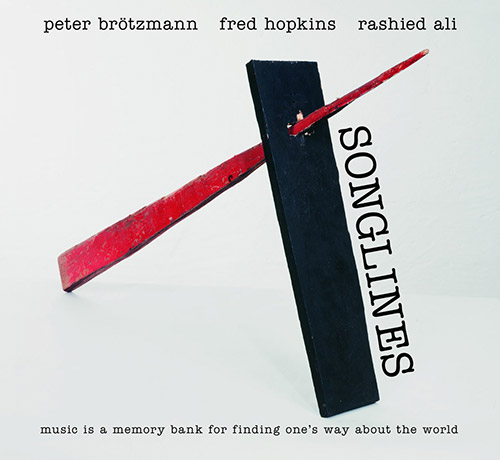

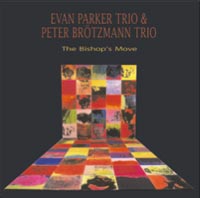


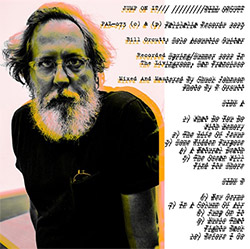
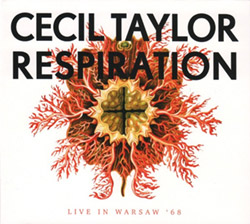


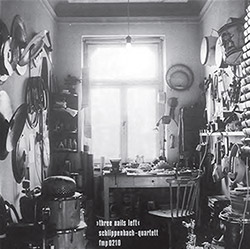

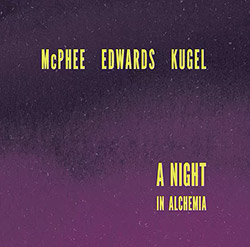


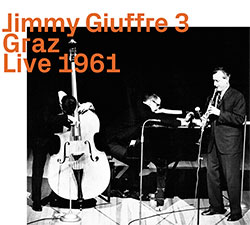
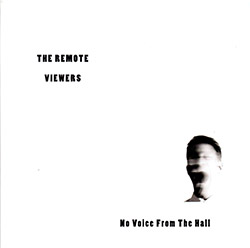
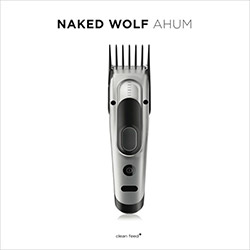
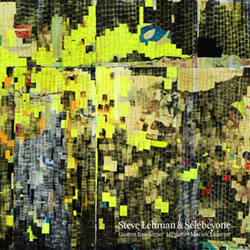
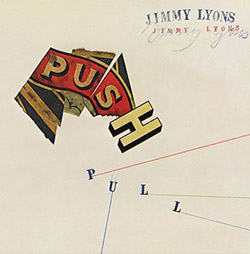
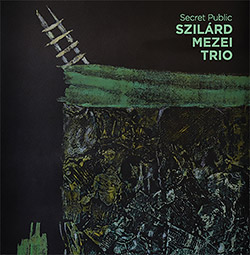

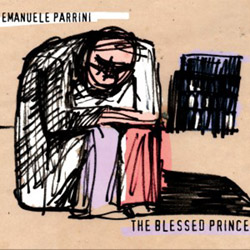

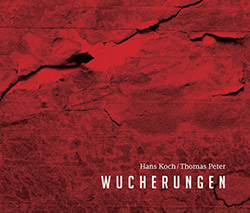
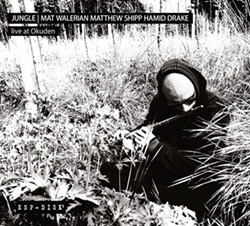
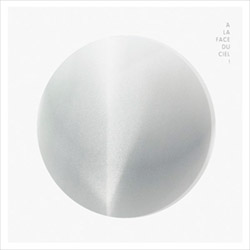
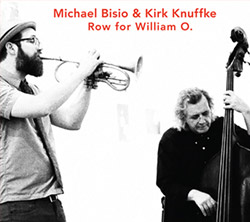










![Deupree, Jerome / Sylvie Courvoisier / Lester St. Louis / Joe Morris: Canyon [2 CDs]](https://www.teuthida.com/productImages/misc4/36404.jpg)


![Eternities: Rides Again [CASSETTE]](https://www.teuthida.com/productImages/misc4/36247.jpg)

![Lopez, Francisco: Untitled (2021-2022) [2 CDs]](https://www.teuthida.com/productImages/misc4/36438.jpg)




![Eventless Plot | Haarvol: The Subliminal Paths [CASSETTE + DOWNLOAD]](https://www.teuthida.com/productImages/misc4/36232.jpg)












![Eventless Plot | Francesco Covarino: Methexis [CASSETTE + DOWNLOAD]](https://www.teuthida.com/productImages/misc4/36231.jpg)



![Das B (Mazen Kerbaj / Mike Majkowski / Magda Mayas / Tony Buck): Love [VINYL]](https://www.teuthida.com/productImages/misc4/36329.jpg)



![Hemphill Stringtet, The: Plays the Music of Julius Hemphill [VINYL]](https://www.teuthida.com/productImages/misc4/36409.jpg)



![Halvorson, Mary Septet: Illusionary Sea [2 LPS]](https://www.teuthida.com/productImages/misc4/17952.jpg)






![Money : Money 2 [2 CDs]](https://www.teuthida.com/productImages/misc4/35894.jpg)




![Klinga, Erik: Elusive Shimmer [VINYL]](https://www.teuthida.com/productImages/misc4/36258.jpg)
![CHANGES TO blind (Phil Zampino): Volume 9 - I Wave on a Fine Vile Mist [CD + DOWNLOAD]](https://www.teuthida.com/productImages/misc4/36061.jpg)

![Wallmart / Rubbish: Asset Protection [split CD]](https://www.teuthida.com/productImages/misc4/35900.jpg)


![+Dog+: The Family Music Book Vol. 5 [2 CDs]](https://www.teuthida.com/productImages/misc4/35897.jpg)
![Kuvveti, Deli : Kuslar Soyledi [CASSETTE w/ DOWNLOAD]](https://www.teuthida.com/productImages/misc4/36107.jpg)

![Nakayama, Tetsuya: Edo Wan [CASSETTE w/ DOWNLOAD]](https://www.teuthida.com/productImages/misc4/36105.jpg)




![Yiyuan, Liang / Li Daiguo: Sonic Talismans [VINYL]](https://www.teuthida.com/productImages/misc4/35957.jpg)
![Brown, Dan / Dan Reynolds: Live At The Grange Hall [unauthorized][CASSETTE]](https://www.teuthida.com/productImages/misc4/36245.jpg)








![Palestine, Charlemagne / Seppe Gebruers: Beyondddddd The Notessssss [VINYL]](https://www.teuthida.com/productImages/misc4/36206.jpg)
![Palestine, Charlemagne / Seppe Gebruers: Beyondddddd The Notessssss [NEON GREEN VINYL]](https://www.teuthida.com/productImages/misc4/36207.jpg)

![Laubrock, Ingrid: Purposing The Air [2 CDs]](https://www.teuthida.com/productImages/misc4/35639.jpg)

![Yoko, Ono / The Great Learning Orchestra: Selected Recordings From Grapefruit [2 CDs]](https://www.teuthida.com/productImages/misc4/35841.jpg)








![Zorn, John / JACK Quartet: The Complete String Quartets [2 CDs]](https://www.teuthida.com/productImages/misc4/35609.jpg)

![Lonsdale, Eden: Dawnings [2 CDs]](https://www.teuthida.com/productImages/misc4/35480.jpg)



![Sorry For Laughing (G. Whitlow / M. Bates / Dave-Id / E. Ka-Spel): Rain Flowers [2 CDS]](https://www.teuthida.com/productImages/misc4/35985.jpg)

![Rolando, Tommaso / Andy Moor : Biscotti [CASSETTE w/ DOWNLOADS]](https://www.teuthida.com/productImages/misc4/36106.jpg)


![Electric Bird Noise / Derek Roddy: 8-10-22 [CD EP]](https://www.teuthida.com/productImages/misc4/35970.jpg)








![Elephant9 : Mythical River [VINYL]](https://www.teuthida.com/productImages/misc4/34624.jpg)



![Elephant9 with Terje Rypdal: Catching Fire [VINYL 2 LPs]](https://www.teuthida.com/productImages/misc4/35355.jpg)
![Deerlady (Obomsawin, Mali / Magdalena Abrego): Greatest Hits [VINYL]](https://www.teuthida.com/productImages/misc4/34876.jpg)







![Surplus 1980: Illusion of Consistency [CD]](https://www.teuthida.com/productImages/misc4/35069.jpg)
![Staiano, Moe: Away Towards the Light [VINYL + DOWNLOAD]](https://www.teuthida.com/productImages/misc4/35037.jpg)
![Coley, Byron: Dating Tips for Touring Bands [VINYL]](https://www.teuthida.com/productImages/misc4/17906.jpg)

![Lost Kisses: My Life is Sad & Funny [DVD]](https://www.teuthida.com/productImages/misc4/lostKissesDVD.jpg)